Language Arts
Children are born with an innate ability to learn language, and they naturally acquire the skill of speaking when no obstacles impede their development. Similarly, when children are immersed in a carefully prepared, vocabulary-rich environment, the foundations for reading and writing are established seamlessly.
In a Montessori classroom, even toddlers begin their journey with language through engaging sound games with their teacher, helping them recognize and differentiate the sounds in words. This natural progression continues as children learn letter sounds, connect them to letter symbols, blend sounds to form words, construct sentences, and eventually achieve fluent reading and writing. The process unfolds organically, mirroring the way they learn to speak, fostering a lifelong love of language.
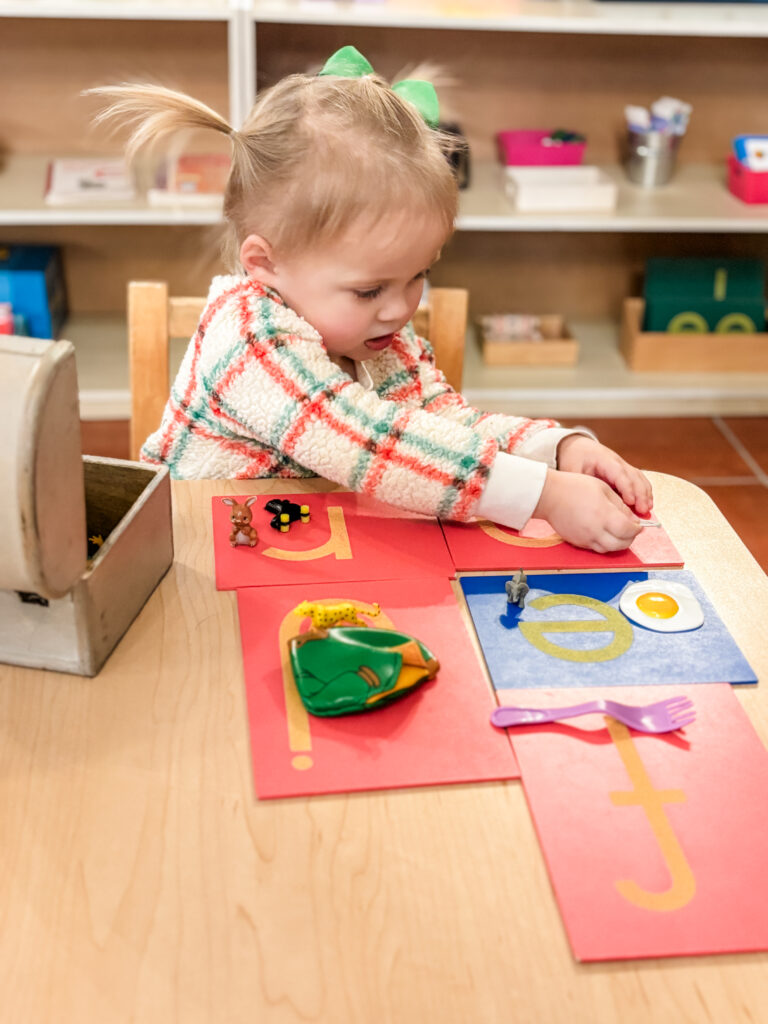
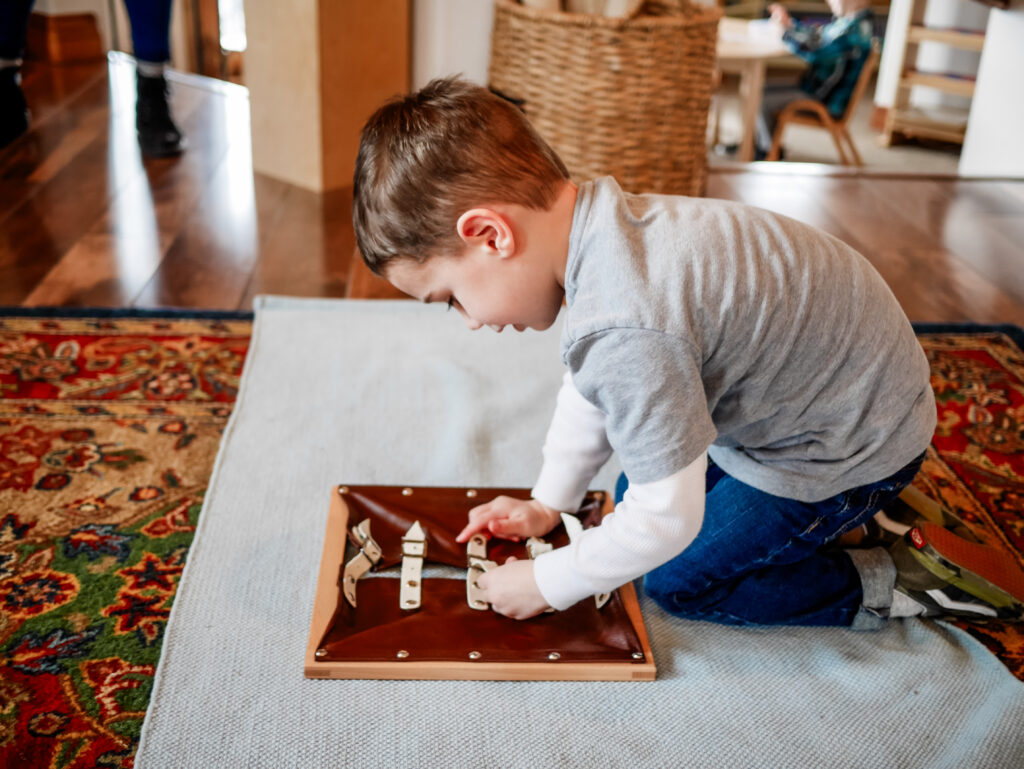
Practical Life
Children gain a sense of importance and pride when they actively participate in the tasks of daily life. In the Practical Life area of the Montessori classroom, children engage in activities such as buttoning, sweeping, cleaning a table, and pouring. These tasks not only foster independence but also teach children the concept of completing a work cycle. They learn to select materials from the shelf, complete the task, and return the materials to their proper place when finished.
Mastering these practical skills builds independence, self-confidence, hand-eye coordination, and concentration. Additionally, these activities strengthen the small muscles in their hands, preparing them for future writing tasks. You’ll be delighted when your child begins practicing these newfound skills at home, contributing to family routines with enthusiasm and confidence.
Mathematics
In the Montessori classroom, children develop a strong understanding of mathematical concepts through hands-on interaction with a variety of materials. By handling and counting real objects, they build a solid foundation for mathematical thinking. All concepts are first explored using concrete materials, allowing children to grasp the concepts in a tangible way before transitioning to abstract ideas.
We introduce the base ten system up to the thousands and guide children through fundamental operations in addition, subtraction, multiplication, and division. This hands-on approach ensures that children not only learn mathematical skills but also develop a deep understanding of the principles behind them.
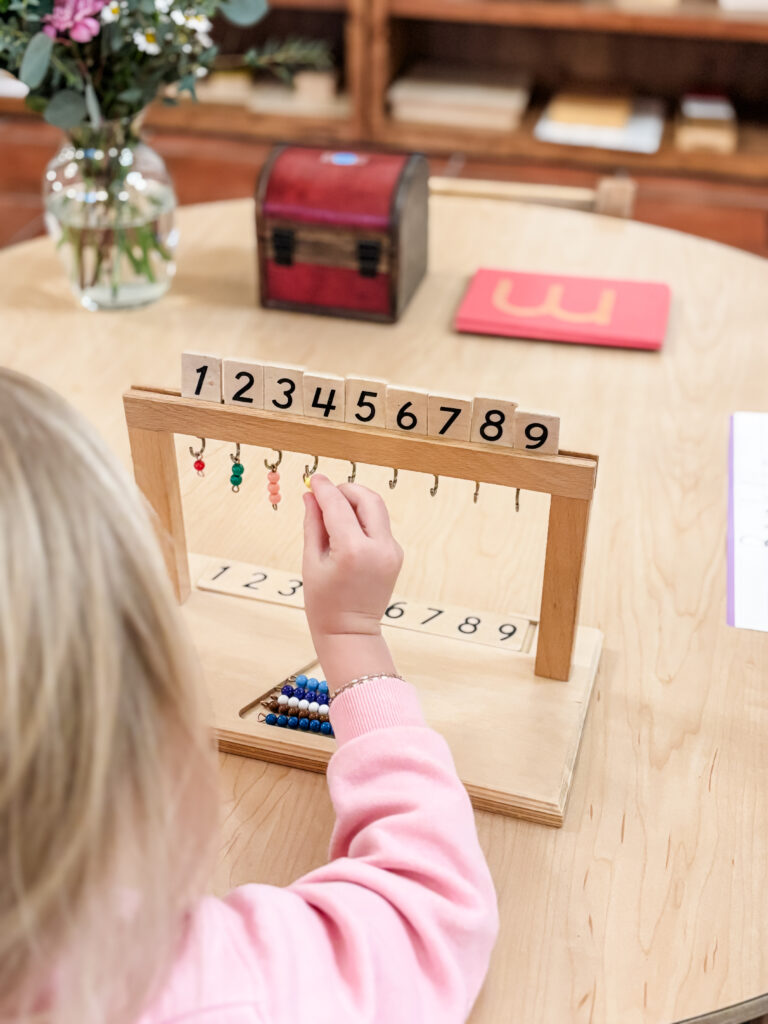
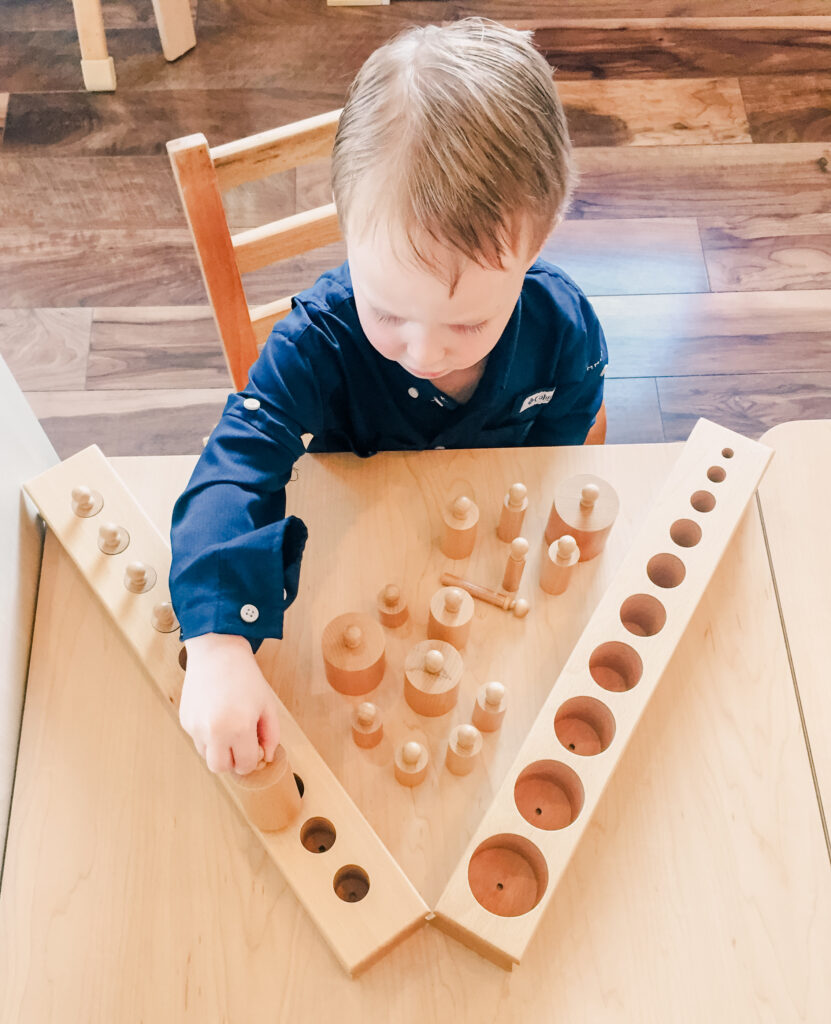
Sensorial Training
All learning begins through our senses—touching, holding, feeling, tasting, seeing, smelling, and listening. In the Sensorial area of the Montessori classroom, children engage with materials that help them isolate and refine each of these senses. Through hands-on exploration, they learn to discriminate between various sizes, weights, shapes, smells, colors, and sounds.
As children become more comfortable with these materials, many enjoy the challenge of completing these tasks blindfolded, further strengthening their sensory awareness and concentration. This process not only sharpens their senses but also helps lay the foundation for more advanced cognitive skills. The more honed these skills are the better able they are able to apply them in other curriculum areas.
Cultural
In the Montessori classroom, children are exposed to a rich array of cultural experiences that broaden their understanding of the world. Through studies in art, music, science, geography, and nature, children develop an appreciation for the beauty around them and a deep respect for diverse cultures.
A key component of this exploration is the study of continents, where children learn about the geography of the world, the unique characteristics of each continent, and the people who live there. In addition to geography, children engage with beautiful examples of art from different cultures, learn about renowned artists, and are encouraged to create their own artwork, fostering creativity and self-expression.
These experiences not only deepen their cultural awareness but also cultivate a sense of global interconnectedness and respect for all people and places.
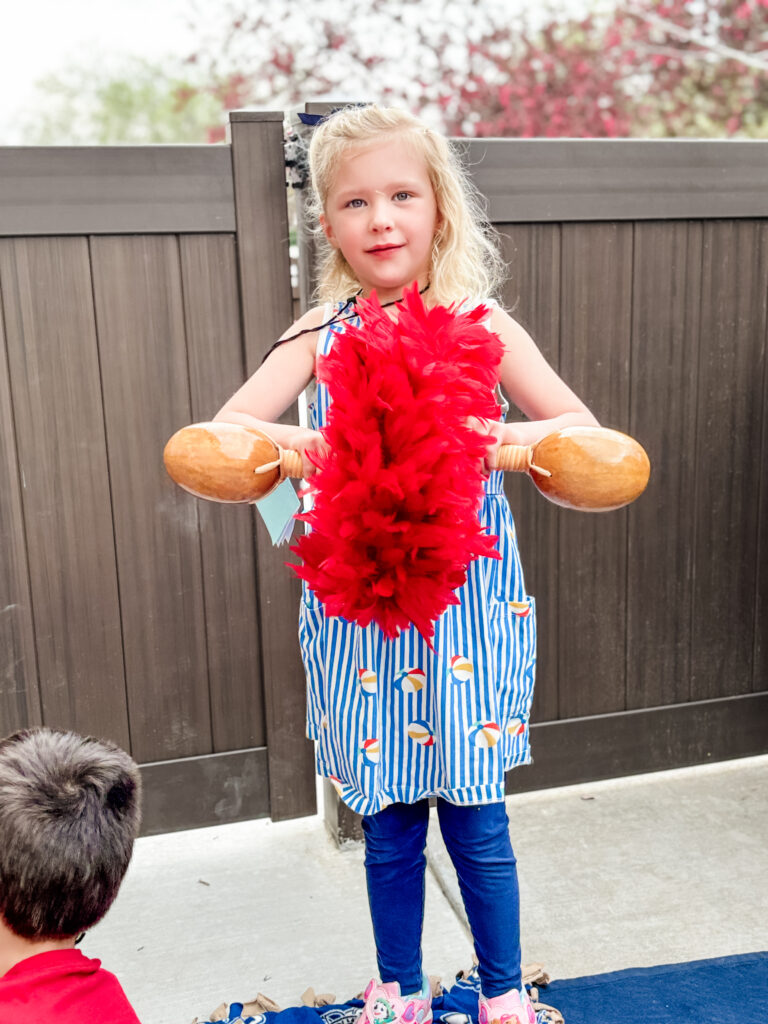
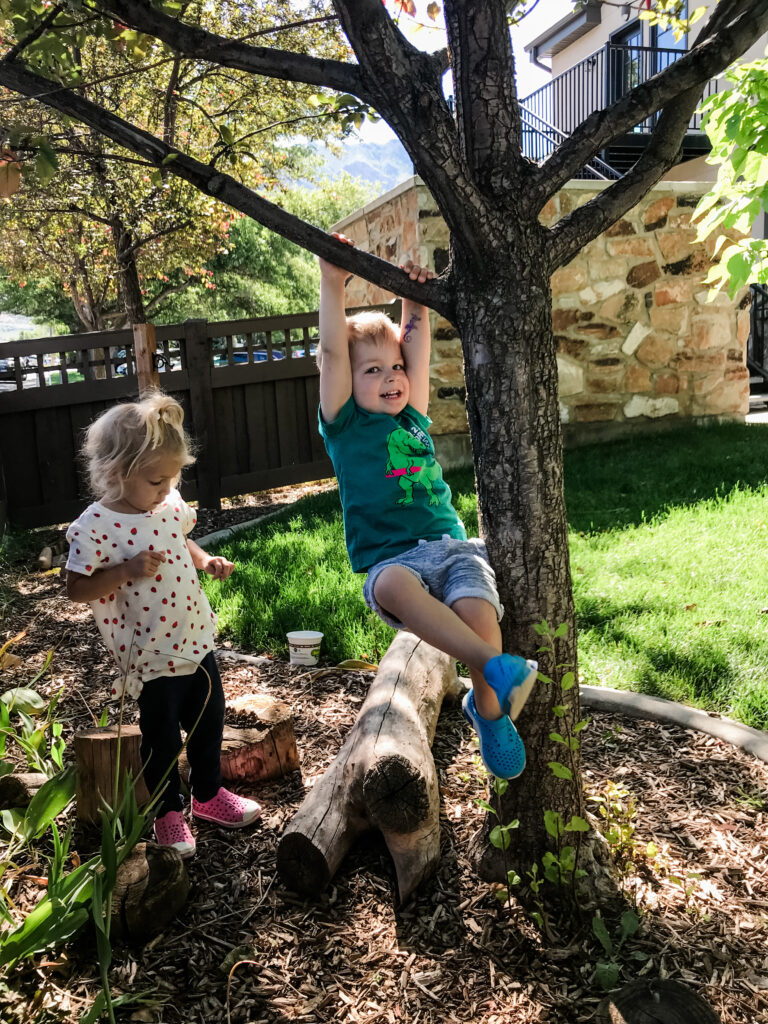
Natural Playground
A natural playground is a key element of the Montessori method, offering children an opportunity to explore and learn through direct engagement with nature. With features like trees, rocks, water, and plants, this outdoor space nurtures creativity, physical development, and a sense of connection to the world around them.
In alignment with Montessori principles, the natural playground encourages self-directed play and exploration. Children not only navigate diverse terrains but also help tend to our vegetable and cut flower gardens, learning about the cycles of nature and the responsibility of caring for living things. These hands-on experiences enhance their problem-solving skills, coordination, and resilience, while providing a sensory-rich environment that supports holistic growth.
